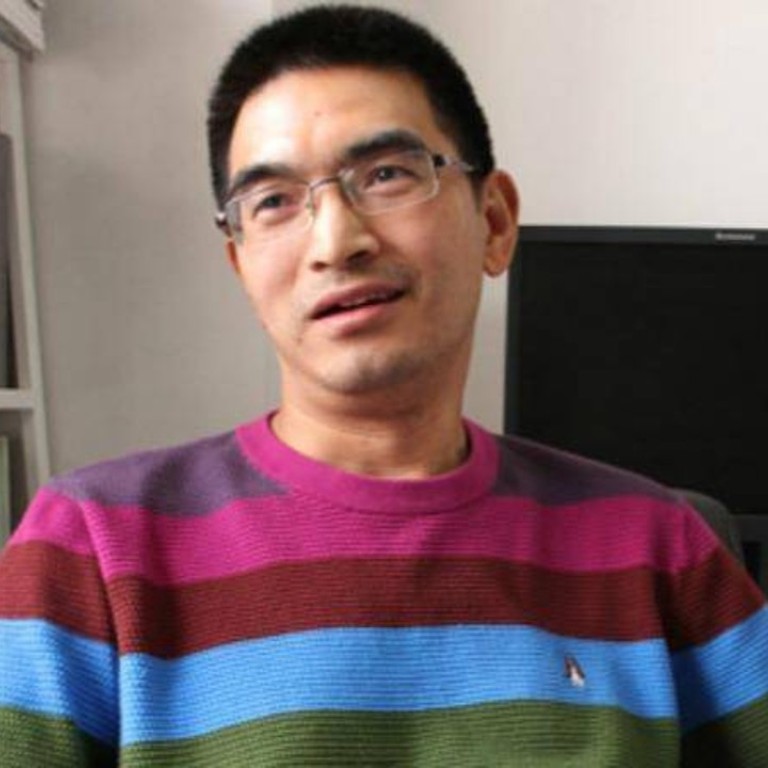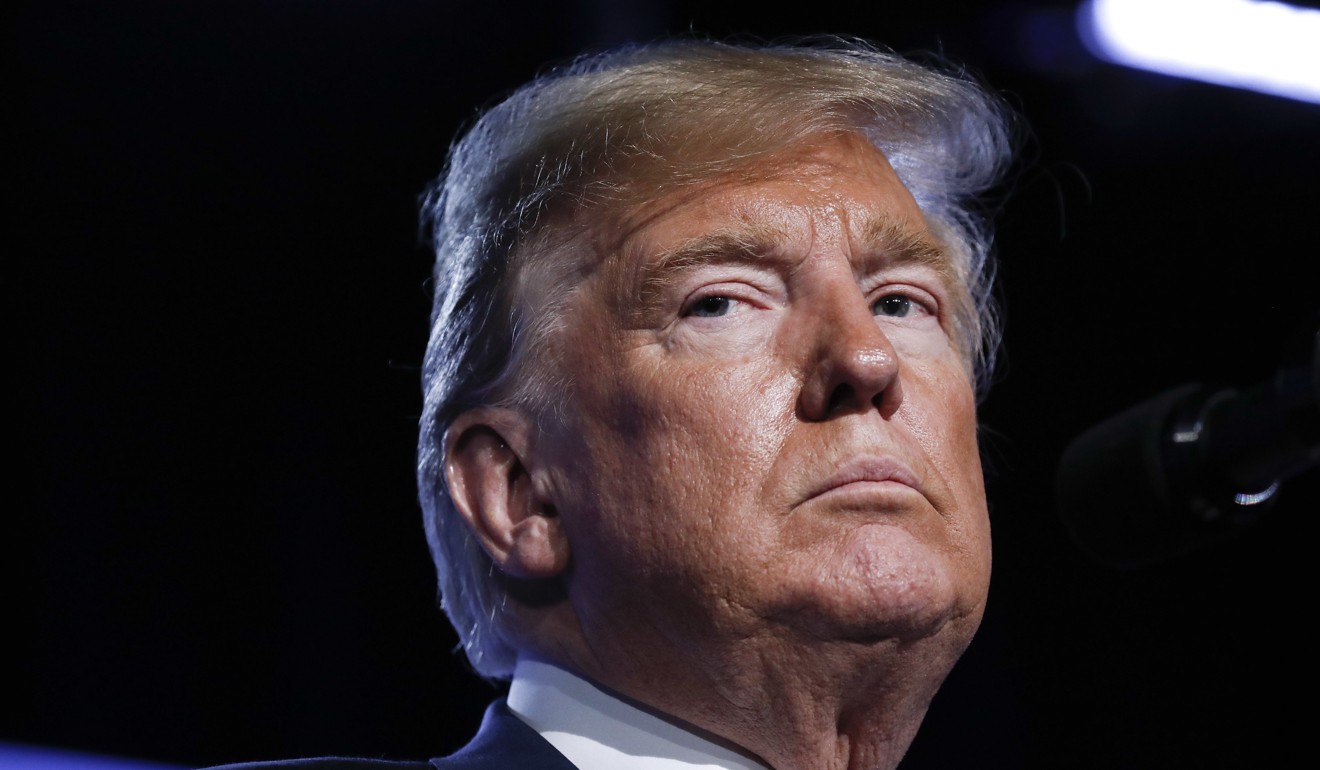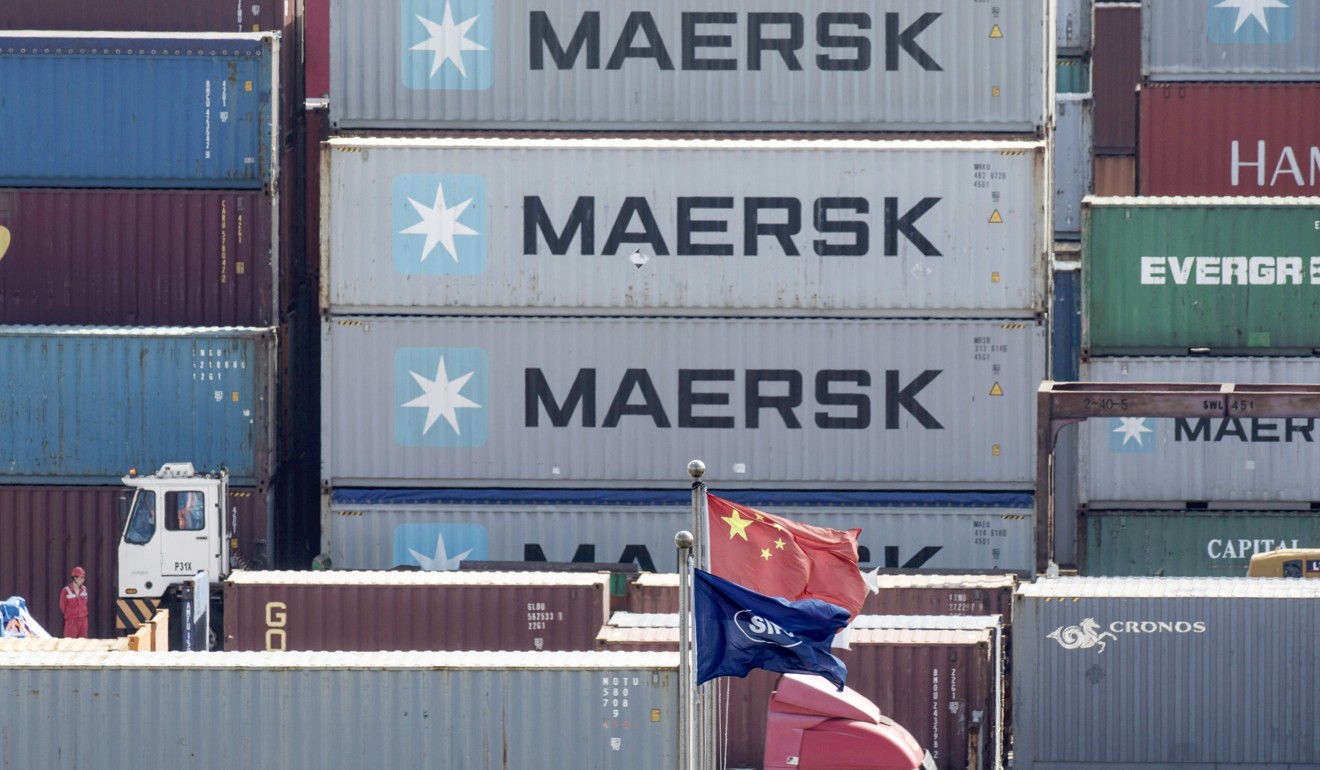
China’s new intellectual star had warned Beijing it was being too complacent over Donald Trump
Trade war vindicates previously unknown academic’s warning that US president’s anti-China diatribes should not be dismissed as campaign rhetoric
A contrarian Chinese research report published two years ago that challenged the consensus that Donald Trump’s rhetorical threats could be safely ignored has left the unknown professor who wrote it basking in the spotlight.
One week after the election in November 2016 – in which Trump had repeatedly singled out China as a threat to US interests – economics professor Yang Qijing wrote that some in China mistakenly considered his victory a strategic opportunity that would support China’s rise.
Instead, that assessment was very likely to be “an over-optimistic and very dangerous strategic misjudgment,” Yang wrote, warning that China needed to study immediate countermeasures to the policies Trump would pursue.
Chinese newspaper attacks Trump’s ‘street fighter-style trade drama’
The paper published by the National Academy of Development and Strategy – a think tank at the Renmin University of China in Beijing – was ignored when it was first issued, as many experts believed China could call Trump’s bluff on trade tariffs and treat his threats as empty words designed to satisfy his domestic audience.
But as the trade war between the world’s two largest economies has escalated, the paper has been dug out of the archives and widely circulated as evidence of how ill-prepared China was for the confrontational new US policy.
Critics charge that Chinese experts on US affairs misread Trump and the changing mood in Washington and therefore failed to give good advice to China’s top leadership.
Yang said that his predictions about Trump were made off the top of his head and that he was surprised the paper was even published because he had not treated it as a true academic exercise.
“I had some thoughts about a trade war,” Yang said. “Now it seems I have to think more thoroughly about it.”

Yang’s paper has been widely praised online by economists and members of the public.
The academic, who does not even have a verified profile on the network, has suddenly become the centre of attention in academic and economic circles.
The article began circulating extensively on social media platforms such as WeChat and Weibo, with scores of the reposts attracting hundreds of comments.
Ba Shusong, chief China economist with the Stock Exchange of Hong Kong, republished the paper with a thumbs up.
“Didn’t somebody say two months ago that there was no expert on Trump in China. Isn’t Mr Yang the one?” another Weibo user wrote.
Another echoed this point, appearing to be critical of mainstream thoughts on Trump: “China still has strong research prowess. The key is allowing different voices to come out and avoiding one-man voice.”
Last month, China’s Finance Ministry set up a consortium of 20 top Chinese think tanks to come up with better analysis and advice to handle the trade war with the US. But this initiative was only taken after the tariff tit-for-tat had started.
On Friday, Beijing announced it would impose retaliatory tariffs of between 5 and 25 per cent on US$60 billion worth of US imports on top of the US$50 billion in US imports it had already sanctioned. The Chinese move was in response to Trump’s decision to up the ante by raising the threatened tariffs on a further US$200 billion of Chinese imports from 10 per cent to 25 per cent.
China has no idea how to play Trump
These retaliatory trade moves would not have surprised Yang, whose published résumé shows he spent most of his academic life at Renmin University of China researching contract theory and the new institutional economy.
In 2016 he wrote: “Trump’s win is very likely to pose an unprecedented challenge to China.”
He argued: “The Trump administration is most likely to go all out, combining available resources and adopting various political and economic means to attack the Chinese economy in a precise manner, especially China’s manufacturing industry.”
His paper warned that a more accurate interpretation of Trump’s campaign slogan “Make America Great Again” should be “Make America Greatest Again,” adding that China was the biggest threat to this goal.
He said Trump’s mantra meant US economic interests would be the foundations of administration policies, which Trump would see as more important than America’s long-standing alliances when determining who was an enemy and who was a friend.
Yang went on to argue that Trump saw the revival of US manufacturing as a key strand of his nationalist policies, adding that there were some parallels with Chinese leader Deng Xiaoping’s policy of focusing on economic development in 1980.

Trump’s unprecedented challenge to China came not only from his hardline stance on trade but also by the economic advantage his domestic tax cuts would give American businesses, Yang continued.
He also warned that Trump would seek to antagonise China militarily by deploying more forces in the Asia-Pacific region, by deepening ties with China’s neighbours, and by even trying to improve relations with Russia to worsen China’s external environment and create more instability.
US-China ‘beer war’ likely to go flat
Much of what Yang predicted has come true.
In addition to his economic moves, Trump has increased defence spending with the perceived threat from China in mind, with American officials making clear that the US is committed the security and prosperity of the Asia-Pacific region.

